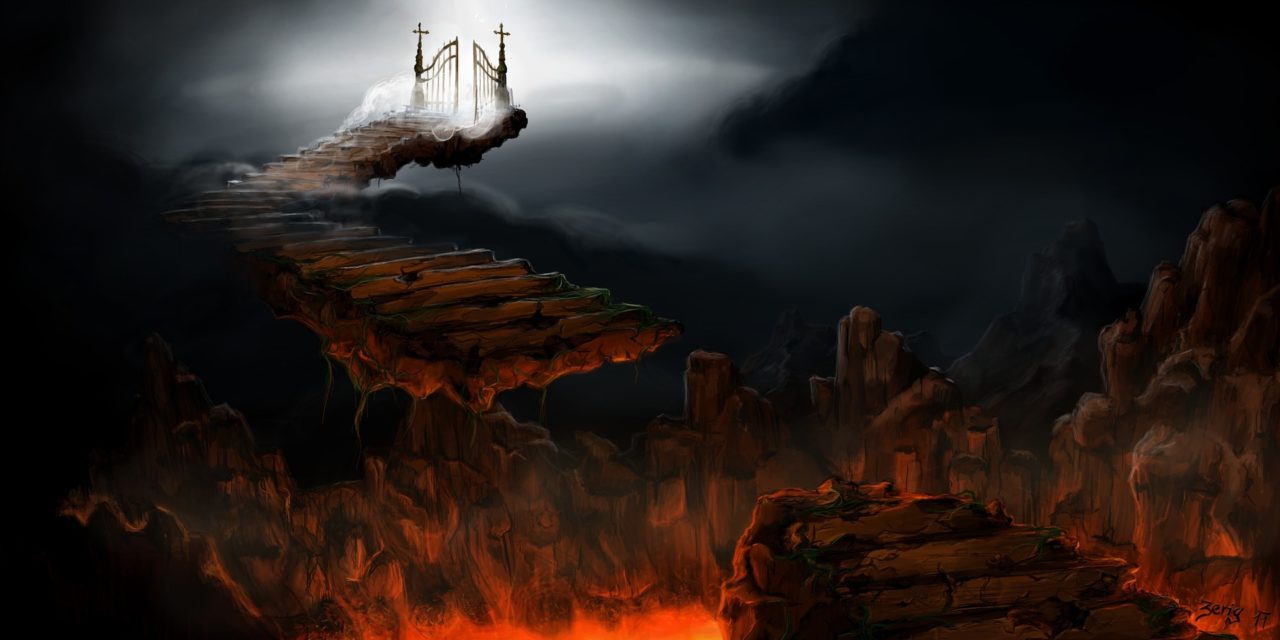The Justice of God
By Billy Graham
Billy Graham Evangelistic Association
One of the most colorful figures in American history was Robert G. Ingersoll. He was an agnostic who gave dramatic lectures throughout the nation about his doubts concerning the existence of God. One night when he was addressing an audience in a small town in New York, he proclaimed eloquently his doubts about future judgment and hell.
When he was finished, an old drunk stood up in the rear of the hall and said with a thick tongue, “I sure hope you’re right, Brother Bob. I’m counting on that!”
Modern man does not like to think of God in terms of wrath, anger, and judgment. He likes to make God according to his own ideas and give God the characteristics he wants Him to possess. Man tries to remake God to conform to his own wishful thinking so that he can make himself comfortable in his sins.
This modern god has the attributes of love, mercy, and forgiveness, but is without justice. Man doesn’t want to be judged and punished for sin. He “reconstructs” God along the lines of tolerance, all-embracing love and universal goodwill.
In this picture of God, there are no laws that demand absolute obedience and no standards to which man must adhere. For example, more than 900 clergymen and students gathered some time ago at Harvard Divinity School to ponder the so-called “new morality” and its significance for the church.
One professor of divinity said that premarital sex between engaged couples was all right, that God would “understand.” A professor at another theological school thought that no sexual relationship should be absolutely condemned by the church. Thus, many church leaders continue to reconstruct God according to the secular and humanistic trends of our times.
“Man tries to remake God to conform to his own wishful thinking so that he can make himself comfortable in his sins.”
However, this kind of god would make a preposterous world. It would be chaotic, irresponsible, self-destroying. It would be impossible to live with certainty in that kind of world. To have meaning, life must be based upon the law and a lawgiver.
The Psalmist said: “The law of the Lord is perfect, converting the soul; the testimony of the Lord is sure, making wise the simple; the statutes of the Lord are right, rejoicing the heart; the commandment of the Lord is pure, enlightening the eyes” (Psalm 19:7-8).
The Bible warns that “evil men do not understand justice” (Proverbs 28:5).
Jesus Himself put His stamp of approval on the law when He said, “It is easier for heaven and earth to pass away than for one tittle of the law to fail” (Luke 16:17). The Law of Moses and the Sermon on the Mount are standards that can never be changed. No clergyman has a right to lower them in the name of God; to do so is to be in danger of defiling the law, blaspheming God and becoming guilty of heresy.
The Bible declares that God is a God of judgment, wrath, and anger. Time after time Jesus warned of judgment: “Every idle word men may speak, they will give account of it in the day of judgment” (Matthew 12:36).
“The Son of Man will send out His angels, and they will gather out of His kingdom all things that offend, and those who practice lawlessness, and will cast them into the furnace of fire. There will be wailing and gnashing of teeth” (Matthew 13:41-42).
The apostles taught throughout the New Testament that judgment will come. The Apostle Paul said: “He has appointed a day on which He will judge the world in righteousness by the Man whom He has ordained” (Acts 17:31).
The author of the Book of Hebrews wrote, “It is appointed for men to die once, but after this the judgment” (Hebrews 9:27).
They “will give an account to Him who is ready to judge the living and the dead,” said Peter in 1 Peter 4:5.
The Apostle John expressed it this way: “The kings of the earth, the great men, the rich men, the commanders, the mighty men, every slave and every free man, hid themselves in the caves and in the rocks of the mountains, and said to the mountains and rocks, ‘Fall on us and hide us from the face of Him who sits on the throne and from the wrath of the Lamb! For the great day of His wrath has come, and who is able to stand?’” (Revelation 6:15-17).
Hundreds of passages point to a time of judgment for every person who has ever lived—none will escape. If you took all the references to judgment out of the Bible, you would have little Bible left.
“They will give account to Him who is ready to judge the living and the dead.” —1 Peter 4:5
God has offered His love and mercy and forgiveness to men. From the cross, God has said to the whole world, “I love you.” However, when that love is deliberately rejected, the only alternative is judgment.
The great judgment of sinners is recorded in Revelation 20:11-13, where the Apostle John says, “Then I saw a great white throne and Him who sat on it, from whose face the earth and the heaven fled away. And there was found no place for them. And I saw the dead, small and great, standing before God, and books were opened. And another book was opened, which is the Book of Life. And the dead were judged according to their works.”
Here is the judgment toward which every person outside of Christ is headed. God has already set the date. All people, of all races and nationalities, both past and present, will be there. You may make and break appointments in this life, but this is one appointment you are going to keep.
In “that day” the books will be opened, the Bible says. Those who have not accepted Christ—whether they were rich or poor, titled or common, old or young, healthy or ill, sound of body or crippled, famous or obscure—will be revealed for all to see. What a terrifying moment for millions when the books are opened at the judgment!
This is the day that Jesus referred to in the Sermon on the Mount: “Not everyone who says to Me, ‘Lord, Lord,’ shall enter the kingdom of heaven, but he who does the will of My Father in heaven. Many will say to Me in that day, ‘Lord, Lord, have we not prophesied in Your name, cast out demons in Your name, and done many wonders in Your name?’ And then I will declare to them, ‘I never knew you; depart from Me, you who practice lawlessness!’” (Matthew 7:21-23).
Even people who did the work of the Lord will be included. They were busy in the church. They did many wonderful works. But Jesus Himself will say, “I never knew you.” What a dreadful thing! They thought their own good works would save them. It should sober us to realize that someday Jesus Christ will be Judge. “For the Father judges no one but has committed all judgment to the Son” (John 5:22).
When Warren Candler was a young man practicing law, he defended a man accused of murder. The young lawyer went all out in his effort to clear his client of the charge. There were some extenuating circumstances, and Candler made the most of them in his plea before the jury.
“Today Christ is our lawyer, pleading on our behalf. He is our Savior, willing to forgive and cleanse and forget. However, there is coming a fearful day when He will be the Judge.”
Also, the aged father and mother of the defendant were in the court, and the young lawyer moved on the sympathies and emotions of the jury by frequent references to the God-fearing parents.
In due course, the jury reached a verdict: not guilty. The young lawyer, himself a Christian, had a serious talk with his cleared client. He warned him to steer clear of evil ways and to trust God’s power to keep him straight.
Years passed. Again, the man was brought into court. Again, the charge was murder. Candler, the lawyer who had defended him at his first trial, was now the judge on the bench. At the conclusion of the trial, the jury rendered its verdict: guilty.
Ordering the condemned man to stand for sentencing, Judge Candler said, “At your first trial I was your lawyer. Today I am your judge. The verdict of the jury makes it mandatory for me to sentence you to be hanged by the neck until you are dead.”
Today Christ is our lawyer, pleading on our behalf. He is our Savior, willing to forgive and cleanse and forget. However, there is coming a fearful day when He will be the Judge.
Are you prepared to meet God? The Prophet Amos, in warning the people of judgment in his day, used the expression, “Prepare to meet your God” (Amos 4:12). Are you prepared to meet God at the judgment? Because you see, we don’t have very much longer to live.
Even a full life of 70 years is just a moment in eternity. Life is passing fast for all of us. It won’t be long until we stand before God to give an account of how we have lived in this life. Are you prepared?
You ask, “What do I have to do to prepare?” The Bible says that you must repent of your sins. Jesus said, “Unless you repent you will… perish” (Luke 13:3). Second, you must receive Christ as your Lord and Savior.
And you can receive Him right now and trust Him at this moment. The Bible says you are to receive Him now—” Now is the accepted time” (2 Corinthians 6:2). Don’t put it off. Don’t say, “I’ll think about it.” Don’t say, “I’ll do it tomorrow.” Do it right now. At this moment, say yes to Jesus Christ.







